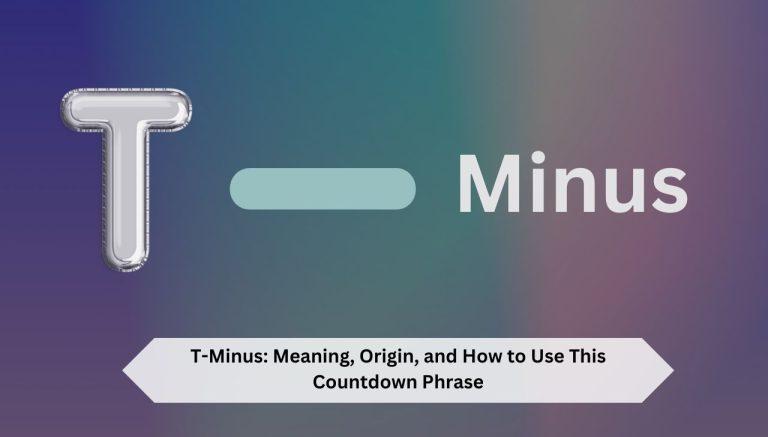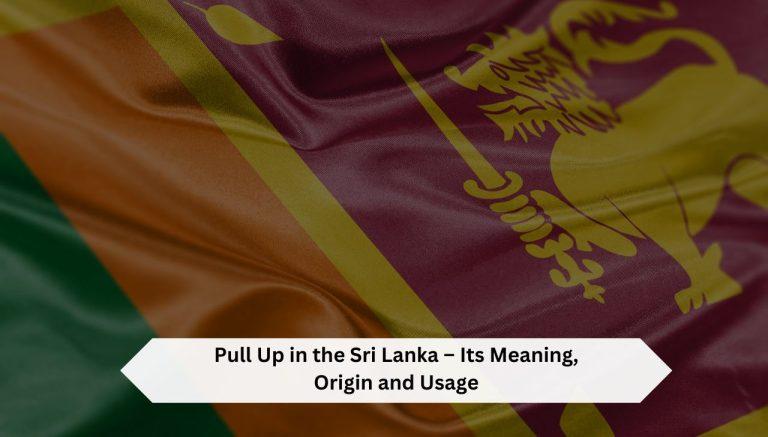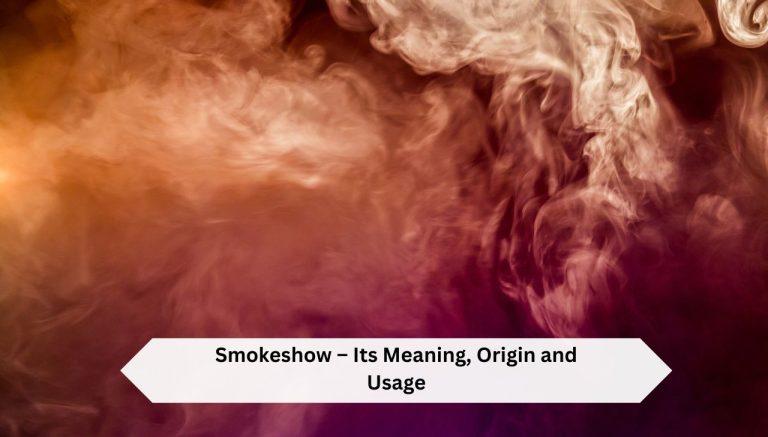What Kind of Vs What Kinds of: Easy Tips to Use Them Right
As a writer and language enthusiast, I’ve noticed that many people struggle with the subtle yet important distinction between “What Kind of vs What Kinds of.” At first glance, these phrases might seem interchangeable, but they serve different purposes in our language.
This guide will walk you through the ins and outs of using these phrases correctly, helping you enhance your communication skills and avoid common pitfalls.
Understanding the Basics: Singular vs. Plural

At its core, the choice between “What Kind of Vs What Kinds of” boils down to a simple rule: singular versus plural. This fundamental distinction is the key to using these phrases correctly in various contexts.
“What Kind of”: The Singular Inquiry
When you use “What Kind of,” you’re asking about a single type, category, or instance of something. A singular noun follows this phrase. For example:
- What kind of car do you drive?
- What kind of music do you enjoy listening to?
- What kind of food is your favorite?
In each of these questions within our Community, we’re looking into a single category or type. Then, as we explore further, we expect the answer to be a specific type of car, a particular genre of music, or a single cuisine.
“What Kinds of”: The Plural Exploration
On the other hand, “What Kinds of” is used when you’re asking about multiple types, categories, or instances. A plural noun follows this phrase. For instance:
- What kinds of cars are popular in your country?
- What kinds of music do you have in your playlist?
- What kinds of foods do you enjoy cooking?
These questions are seeking information about various types or categories. The answers include several different car models, multiple music genres, or a range of cuisines.
Contextual Usage: When to Use What Kind of Vs What Kinds of

Understanding the context of your question is crucial in choosing between “What Kind of” and “What Kinds of.” Look at some scenarios to illustrate this:
Specific Inquiries
When you’re looking for information about a particular instance or category, “What Kind of” is your go-to phrase. It’s perfect for questions that expect a single, specific answer:
- What kind of phone do you have? (Expecting an answer like “iPhone” or “Samsung Galaxy”)
- What kind of pet would you like to adopt? (Anticipating a response such as “dog” or “cat”)
Broad Explorations
For questions that invite a range of answers or when you’re exploring multiple categories, “What Kinds of” is more appropriate:
- What kinds of phones are available in the market? (Expecting a list of various brands and models)
- What kinds of pets are suitable for small apartments? (Anticipating multiple options like cats, small dogs, fish, etc.)
Common Mistakes and How to Avoid Them
Even native English speakers sometimes stumble when using these phrases. Here are some common errors and how to steer clear of them:
Mismatching Singular and Plural
One frequent mistake is using “What Kind of” with a plural noun or “What Kinds of” with a singular noun. For example:
- Incorrect: What kind of books do you like to read?
- Correct: What kinds of books do you like to read?
- Incorrect: What kinds of car is that?
- Correct: What kind of car is that?
Confusion with Collective Nouns
Collective nouns can be tricky. These are nouns that represent a group but are grammatically singular. For instance:
- What kind of team are you looking to join? (Correct, as “team” is a collective noun)
- What kinds of family do you come from? (Incorrect, should be “What kind of family”)
Overlooking Context
The context of the question determines which phrase to use. Consider these examples:
- What kind of fruit do you like? (Asking about a preferred type of fruit)
- What kinds of fruits are in this salad? (Inquiring about the variety of fruits in a specific dish)
Practical Examples in Various Contexts

To further solidify your understanding, Look at how these phrases are used in different situations:
In Educational Settings
- What kind of degree are you pursuing? (Asking about a specific type of degree)
- What kinds of courses are offered in this program? (Inquiring about the variety of courses available)
In Professional Environments
- What kind of experience do you have in marketing? (Seeking information about specific experience)
- What kinds of skills are required for this position? (Asking about multiple skills needed)
In Everyday Conversations
- What kind of movie do you want to watch tonight? (Asking about a specific genre or type)
- What kinds of activities do you enjoy on weekends? (Inquiring about various leisure activities)
Enhancing Your Language Skills
The use of “What Kind of” and “What Kinds of” is more than just a grammatical exercise. It’s about refining your ability to communicate clearly and precisely. By using these phrases correctly, you demonstrate a nuanced understanding of the English language, which can be particularly impressive in academic or professional settings.
Language is a tool for effective communication. The goal is not just to be grammatically correct but to convey your thoughts and questions as clearly as possible. By choosing the proper phrase, you guide the person you’re talking to toward the type of answer you’re seeking – whether it’s a specific response or a broader range of options.
Read more an other best example post:
Advanced Uses and Exceptions
While the basic rule of singular versus plural is straightforward, English, like any language, has its complexities.
Uncountable Nouns
Uncountable nouns (also known as mass nouns) present an interesting case. These are nouns that can’t be counted as individual units, like “water,” “music,” or “information.” With uncountable nouns, we typically use “What kind of” even though we might be referring to multiple varieties. For example:
- What kind of music do you listen to? (Correct, even though “music” encompasses various genres)
- What kind of information do you need? (Correct, as “information” is uncountable)
Collective Nouns Revisited
We touched on collective nouns earlier, but they deserve a closer look. Collective nouns can be tricky because they’re singular in form but plural in meaning. The choice between “What kind of” and “What kinds of” can depend on whether you’re treating the collective as a single unit or focusing on its members:
- What kind of team are you looking for? (Treating the team as a single unit)
- What kinds of players make up a successful team? (Focusing on the individual members)
Abstract Concepts
When dealing with abstract concepts, the choice between singular and plural can depend on how you’re conceptualizing the idea:
- What kind of love do you think lasts forever? (Treating love as a concept)
- What kinds of love exist in human relationships? (Exploring different types of love)
Contextual Nuances
Sometimes, the choice between “What kind of” and “What kinds of” can subtly change the meaning or implication of your question. Consider these examples:
- What kind of person are you? (Asking about overall character or personality)
- What kinds of people do you enjoy spending time with? (Inquiring about various personality types)
This Kind of question helps us understand what makes someone who they are deep down, while the second one explores This Happens when we think about all the different people someone might enjoy spending time with.
Cultural and Regional Variations
It’s worth noting that there can be slight variations in usage across different English-speaking regions. For example:
- In some British English contexts, you might hear “What sort of” used similarly to “What kind of.”
- In specific informal American English settings, “What type of” might be used interchangeably with “What kind of.”
While these variations exist, sticking to the standard usage of “What kind of” and “What kinds of,” as we’ve discussed, will serve you well in most situations.
Practical Applications in Writing and Speaking

Understanding the correct usage of “What kind of” and “What kinds of” is essential in specific contexts:
Academic Writing
In academic papers, precision is critical. Using these phrases correctly can help you frame your research questions accurately:
- “What kind of impact does social media have on adolescent mental health?” (Focusing on the nature of the impact)
- “What kinds of interventions are effective in promoting positive mental health among adolescents?” (Exploring various types of interventions)
Business Communication
In professional settings, clear communication is crucial. Proper use of these phrases can help you gather the right information:
- “What kind of budget are we working with for this project?” (Asking about the overall budget)
- “What kinds of expenses should we anticipate?” (Inquiring about various types of expenses)
Journalistic Writing
Journalists need to ask precise questions to get the information they need:
- “What kind of statement will the company release?” (Asking about the nature of a single statement)
- “What kinds of reactions have you received from the public?” (Exploring various types of reactions)
Enhancing Your Questions
Using “What kind of” and “What kinds of” correctly is just the start. To ask even more practical questions, consider these tips:
- Be specific: Instead of “What kind of food do you like?” try “What kind of cuisine do you prefer for special occasions?”
- Use follow-up questions: After asking, “What kinds of books do you enjoy?” you might follow up with, “What kind of impact has your favorite book had on you?”
- Combine with other question words: “In what kinds of situations do you feel most confident, and why?”
- Consider the scope: “What kind of long-term effects might this decision have?” versus “What kinds of immediate changes can we expect?”
Common Related Phrases
While we’re focusing on “What kind of” and “What kinds of,” it’s helpful to be aware of related phrases that function similarly:
- “Which type of” / “Which types of”
- “What sort of” / “What sorts of”
- “What variety of” / “What varieties of”
These phrases often follow similar singular/plural rules, but their usage can vary slightly depending on context and regional preferences.
Practicing Your Skills
To really cement your understanding, try creating questions using “What kind of” and “What kinds of” in various contexts. Here are some prompts to get you started:
- Asking about someone’s ideal job
- Inquiring about a city’s tourist attractions
- Exploring different types of renewable energy
- Discussing various learning styles
- Investigating different forms of art
The key is to think about whether you’re asking about a single type or multiple types.
The Importance of Context
Throughout this guide, I’ve emphasized the importance of context in choosing between “What kind of” and “What kinds of.” Context isn’t just about grammar; it’s about effective communication. When you select the right phrase, you’re not just following a rule – you’re shaping the conversation and guiding the response you receive.
Consider how these slight changes in phrasing can alter the focus of a conversation:
- “What kind of solution are you proposing?” (Expecting a single, comprehensive solution)
- “What kinds of solutions have you considered?” (Inviting a discussion of multiple options)
In the first question, you’re asking the person to present their best or most favored solution. In the second, you’re opening the floor to a broader discussion of various possibilities.
The Role of Tone and Formality
The choice between “What kind of” and “What kinds of” can also be influenced by the tone and formality of your communication:
- In formal writing or speech, adhering strictly to the singular/plural distinction is advisable.
- In casual conversation, you might find native speakers using these phrases more interchangeably, especially with uncountable nouns.
Consistently using them correctly will enhance your overall language proficiency and ensure clarity in all contexts.
Beyond English: A Universal Concept
While we’ve focused on English, the concept of distinguishing between asking about a single type versus multiple types exists in many languages. Being aware of this can help you if you’re learning other languages or communicating with non-native English speakers.
For example:
- In Spanish: “Qué tipo de…?” (singular) vs. “Qué tipos de…?” (plural)
- In French: “Quel genre de…?” (singular) vs. “Quels genres de…?” (plural)
Understanding this concept as a universal idea rather than just an English grammar rule can deepen your overall language awareness.
Conclusion
The correct usage of “What Kind of vs What Kinds of” is more than just a grammar lesson. It’s about enhancing your ability to communicate clearly and effectively. By understanding the nuances between these phrases, you can ask more precise questions, write more engaging content, and express your thoughts with greater accuracy.
Language is a powerful tool. The more precisely you use it, the more effectively you can convey your ideas, whether you’re writing an academic paper, conducting a business meeting, or simply having a conversation with friends. Practice using these phrases correctly, and you’ll notice an improvement in your overall communication skills.
As you continue to hone your language skills, pay attention to how others use these phrases in various contexts. This awareness will help you further refine your usage and deepen your understanding of the English language.
FAQs
What is the difference between kind and kinds?
“Kind” is singular, referring to a specific type or category. For example, “What kind of dog is that?” “Kinds” is plural, referring to multiple types or categories. Just an example: “There are many kinds of apples.”
Do we say what kind or which kind?
Both “what kind” and “which kind” can be used to ask about a specific type or category. However, “which kind” suggests a choice between known options. Just like, “What kind of music do you like?” versus “Which kind of pizza do you prefer, pepperoni or mushroom?”
What is the difference between what kind and what type?
“Kind” and “type” are often interchangeable, referring to a specific category or classification. The, “type” might imply a more technical or scientific classification. For example, “What kind of car do you drive?” versus “What type of blood do you have?”
What is the difference between what kind of and what sort of?
“What kind of” and “what sort of” are also interchangeable, both asking about a specific category or type. “Sort of” might be considered slightly more informal. For example, “What kind of music do you listen to?” versus “What sort of books do you like to read?”







